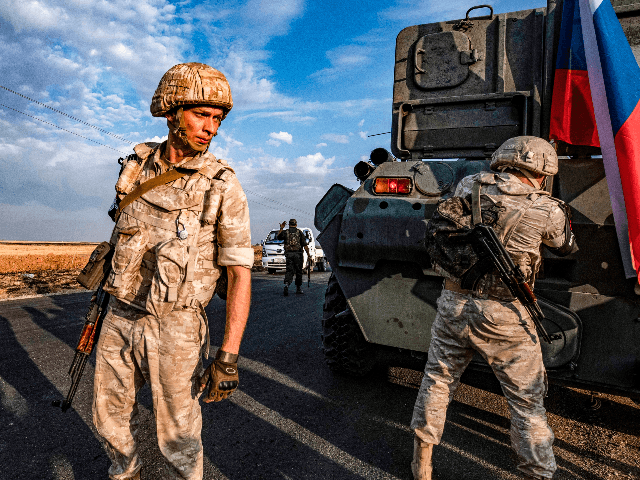Russian ground troops and military vehicles poured into key Syrian Kurdish cities on Wednesday and Thursday as part of Russia’s deal with Turkey to conduct joint patrols of the “safe zone” they are establishing along the Turkey-Syria border, and also to prevent Turkey from attacking deeper into Syria.
Kurds in Kobani, the city that proved to be a decisive turning point in the battle against the Islamic State, expressed misgivings about the arrival of a Russian military column on Wednesday.
“Myself, I prefer a deal with [the United States] more than Russia,” one Kobani resident told the Kurdish news service Rudaw. “I do not know why I am not comfortable with Russia. I do not know what will happen.”
Kurdish residents of the area saw Turkey’s Syrian military allies – the Free Syrian Army once touted as a “moderate” rebel force and supported by the Obama administration – as a far more dangerous threat than the Russians, or even the invading Turkish troops. “Those mercenaries are even more dangerous than ISIL,” warned the Kobani resident who spoke to Rudaw, using another name for the Islamic State.
Despite the sense of unease about the Russian presence among Kurdish civilians, the Kurdish-led Syrian Democratic Forces (SDF) military alliance reported that Russian military police and Syrian government troops have reached several key locations in northeastern Syria and are providing SDF forces with “all kinds of help and assistance.”
The Russian Defense Ministry stated that Russian military police carried out their first joint patrol with Turkish forces on Wednesday “in accordance with the memorandum of the deal that was signed between Turkey and Russia in Sochi on Oct. 22.”
Russian media quoted the Defense Ministry saying an additional 276 military police and 33 “units of military hardware” would be sent to Syria next week. Regular Russian-Turkish joint patrols of the area are expected to begin at that time.
German Chancellor Angela Merkel’s office on Thursday criticized the Sochi agreement between Turkey and Russia and called for an international force to patrol northeastern Syria instead of the Russians and Turks.
Merkel did not provide any concrete proposals for assembling and deploying such a force, and NATO did not exactly leap at the opportunity to provide the manpower. Instead, NATO Secretary-General Jens Stoltenberg spoke vaguely of finding a “political solution” that would “involve all actors on the ground.”

COMMENTS
Please let us know if you're having issues with commenting.